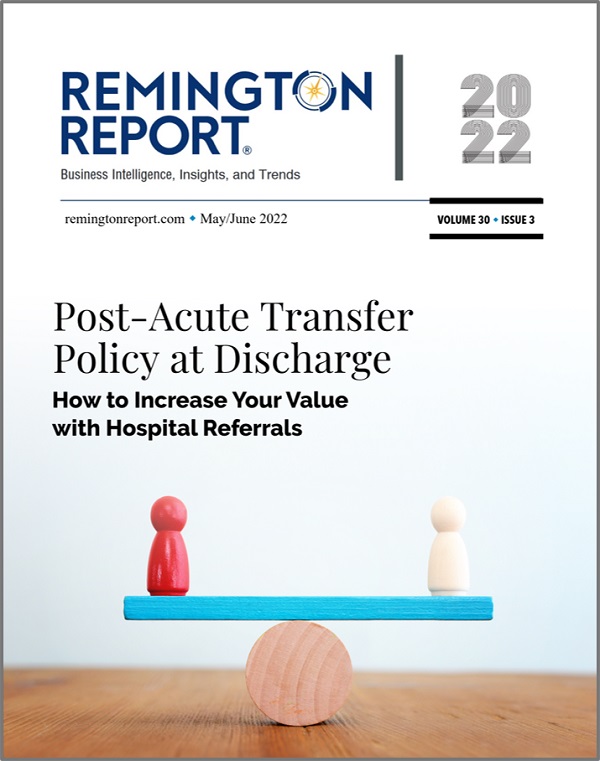Aggressive moves by payers teaming up with big players such as CVS are advancing their healthcare programs into the home. How does this impact healthcare organizations? Are these new partnering opportunities or, a new competitor on the horizon?
CVS Health Will Pilot A Coordinated Care Knee Replacement Model For Aetna Beneficiaries
CVS Health will pilot a coordinated care knee replacement model for Aetna’s Medicare Advantage (MA) and commercial members beneficiaries. Pre-and-post operative care for members undergoing a knee replacement will be managed by a clinical team in the home, at CVS locations, and via telehealth.
In a video displayed at a Medicare Advantage conference, an elderly knee replacement patient meets with a CVS case manager to make sure her surgeon is in-network, gets a home assessment to ensure safety post-operation and has a CVS representative help her pick out a cane and coordinate prescriptions.
Currently, a patient might be at risk of a lack of coordinated care, no transportation to and from appointments, delayed follow-up, and a lack of communication. In a new effort to “simplify the patient journey” CVS Health would coordinate the communication, the transportation, and provide supplies, said Larry Merlo, President and CEO of CVS Health.
This is a series of initiatives resulting from CVS and payer arm Aetna. The model’s goal is to cut costs by reducing hospital readmissions, ED visits, and a push to move care outside the hospital setting.
Knee Replacement After Care Moving Into the Home
The data comes from a March 2019 study in JAMA Internal Medicine of 17 million Medicare hospitalizations of people from 2010 to 2016. All the patients were older adults and went home or to a skilled nursing facility after a medical procedure or a serious illness. Knee and hip replacements were the most common reason for these hospitalizations.
The study answered the question: How are patient outcomes and Medicare spending affected by the decision to discharge patients to home with home health care vs to a skilled nursing facility for post-acute care?
Findings
People who were sent home with home health care services demonstrated the same level of functional improvement as those who went to a skilled nursing facility (assessments examined their ability to walk and get up and down stairs, among other activities), the study found. And they were no more likely to die 30 days after surgery (a very small percentage in each group). Overall, costs were significantly lower for patients who went home, while hospital readmissions were slightly higher — a possible signal that home health care services needed strengthening or that family caregivers needed better education and training.
Conclusions
Among Medicare beneficiaries eligible for post-acute care at home or in a skilled nursing facility, discharge to home with home health care was associated with higher rates of readmission, no detectable differences in mortality or functional outcomes, and lower Medicare payments.

Lisa Remington is president and publisher of the Remington Report magazine and President of Remington’s Home Care Leadership Think Tank. She has worked with more than 10,000 organizations in both a consultancy role and an educator. Lisa monitors the complex key trends and forces of change to develop a correct strategic approach to de-risk decision-making and create sustainable futures across the healthcare continuum.










